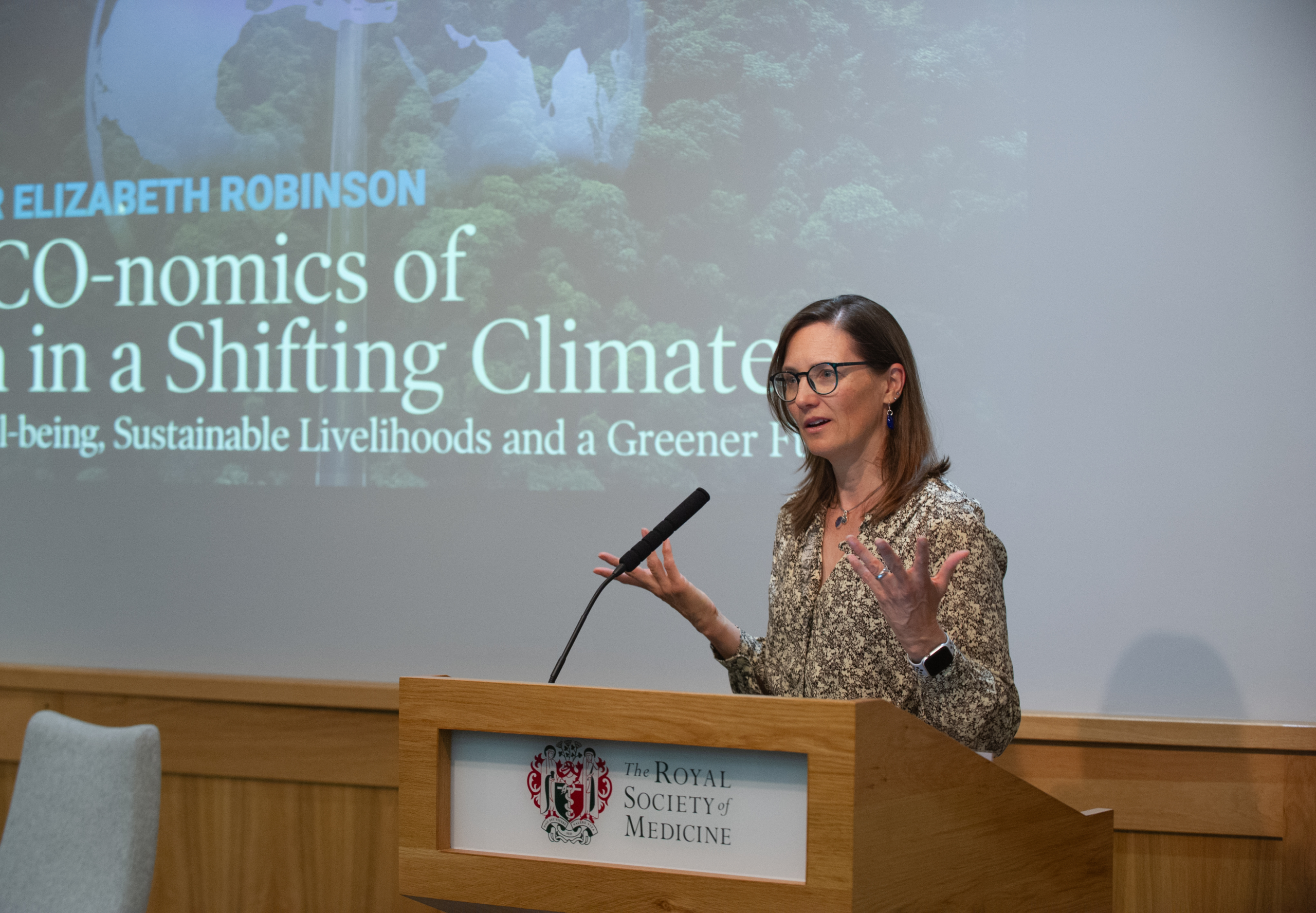Unlocking the Value of Combination Therapies



This year’s OHE lecture addressed the question: how should the world pay for a COVID-19 vaccine? The paper by Adrian Towse and Isobel Firth accompanying the lecture is now published. It builds on work undertaken with Kalipso Chalkidou, Rachel Silverman…
This year’s OHE lecture addressed the question: how should the world pay for a COVID-19 vaccine? The paper by Adrian Towse and Isobel Firth accompanying the lecture is now published. It builds on work undertaken with Kalipso Chalkidou, Rachel Silverman and Ganesh Ramakrishnan from the Center for Global Development, and Hannah Kettler from PATH, and with Martina Garau and Marina Rodes-Sanchez from the OHE.
The COVID-19 pandemic continues to cause a health and economic emergency across the world. Countries that have begun relaxing lockdowns are now facing surges in cases and deaths; a troubling reminder that the world is in desperate need of better tools to control the spread of the virus and to treat those who fall ill with COVID-19. One ‘exit strategy’ from this health and economic crisis is the development of a safe and effective vaccine. A herculean effort to develop a COVID-19 vaccine began 6 months ago with a number of vaccines now already progressing through clinical trials, and over a hundred candidates in pre-clinical development.
Yet how successful vaccines are to be financed and paid for in different parts of the world is still very unclear. A number of governments are funding the development of vaccine candidates and signing agreements to purchase doses if development is successful. Yet most governments do not have the resources to do this, and global efforts to coordinate development and procurement through the WHO vaccine pillar are in early stages.
In this paper Adrian Towse and Isobel Firth review the challenges that vaccine development and scaling of manufacture will face and argue that there are two requirements to mobilise investment to get the vaccines we need.
Firstly, the right payment and financing mechanism is needed. The best way forward is to create a market for a vaccine with an advance market mechanism based on paying for value. We are currently locking ourselves into a COVID-19 paradigm of publicly funded development and manufacturing, with a number of companies offering to price on a cost-plus basis. Whilst this is an understandable response to the immediate challenge, the authors do not think this is the best paradigm for getting vaccines and making them available to poorer countries. They propose using something closer to the normal paradigm of paying for value and mobilising the private sector to invest at risk, in the expectation that companies will get a return if they deliver the health gain that society wants. The paper recognises the uncertainties around both demand and supply and proposes a value-based or Benefit Based Advance Market Commitment (BBAMC) to cover all countries who wish to participate. Ideally, the authors argue, this will build on proposals from the WHO for a vaccine pillar using a Gavi-led COVAX Facility.
Secondly, a serious commitment of money is needed on the part of high income countries and donors to pay for vaccines for the nearly 50% of the world’s population who live in low-income countries (LICs) and lower middle-income countries (LMICs).
The lecture paper is available on the OHE website here. Further information on the BBAMC is here. It is based on an earlier Center for Global Development and Office of Health Economics proposal for an AMC to incentivise the development of new TB drugs.
Citation
Towse A., Firth I., 2020. How should the world pay for a COVID-19 vaccine? OHE Annual Lecture 2020. Office of Health Economics. Available: https://www.ohe.org/publications/how-should-world-pay-covid-19-vaccine
Related Research
Chalkidou K, Towse A, Silverman R, et al. (2020). Leave No One Behind: Using a Benefit-Based Advance Market Commitment to Incentivise Development and Global Supply of COVID-19 Vaccines. Center for Global Development and the Office of Health Economics. Available: https://www.cgdev.org/publication/leave-no-one-behind-using-benefit-based-advance-market-commitment-covid-vaccine
Chalkidou K, Towse A, Silverman R, et al. (2020). The Race for a COVID-19 Vaccine: An Overview of Current Proposals and Our Contribution in Bringing in the Missing Middle. Center for Global Development and the Office of Health Economics. Available: https://www.cgdev.org/blog/race-covid-19-vaccine-overview-current-proposals-and-our-contribution-bringing-missing-middle
Chalkidou K, Towse A, Silverman R, et al. (2020). In the Race to Develop A Vaccine For COVID-19, Is A Pull For R&D Essential Or Optional? Center for Global Development and the Office of Health Economics. Available: https://www.cgdev.org/blog/race-develop-vaccine-covid-19-pull-rd-essential-or-optional
Chalkidou K, Garau M, Silverman, R M, et al. (2020) Blueprint for a Market-Driven value-based advance commitment (MVAC) for tuberculosis. Center for Global Development and the Office of Health Economics. Available: https://www.cgdev.org/publication/blueprint-market-driven-value-based-advance-commitment-tuberculosis
Chalkidou K, Towse A, Silverman R, et al. (2020). Market-driven, value-based, advance commitment (MVAC): accelerating the development of a pathbreaking universal drug regimen to end TB. BMJ Global Health 2020;5:e002061. Available: https://gh.bmj.com/content/5/4/e002061
An error has occurred, please try again later.
This website uses cookies so that we can provide you with the best user experience possible. Cookie information is stored in your browser and performs functions such as recognising you when you return to our website and helping our team to understand which sections of the website you find most interesting and useful.
Strictly Necessary Cookie should be enabled at all times so that we can save your preferences for cookie settings.
If you disable this cookie, we will not be able to save your preferences. This means that every time you visit this website you will need to enable or disable cookies again.
This website uses Google Analytics to collect anonymous information such as the number of visitors to the site, and the most popular pages.
Keeping this cookie enabled helps us to improve our website.
Please enable Strictly Necessary Cookies first so that we can save your preferences!



